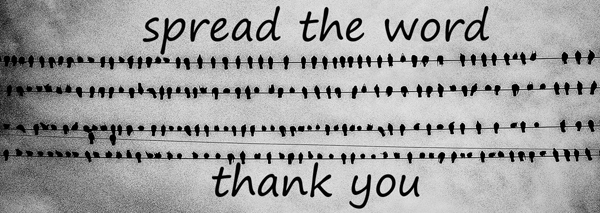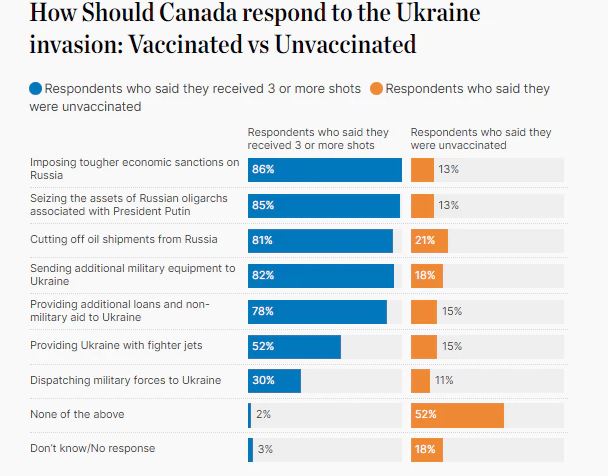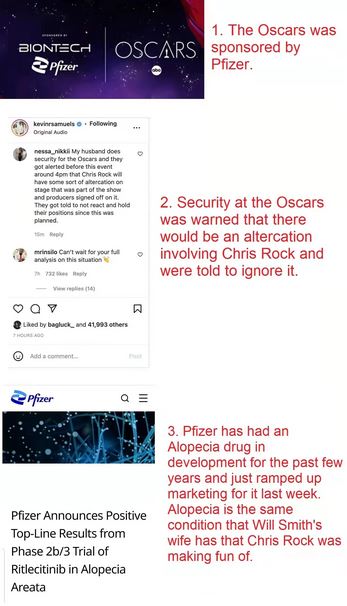
| WELCOME |
 |

comments, ephemera, speculation, etc. (protected political speech and personal opinion) 2022- 2022-03-31 c IS THAT SO? III There
is a lot to learn from Will Smith's recent Oscar
performance for Pfizer
Public Relations Shapes the Practice of Medicine Many of you have seen the sunglasses meme. It comes from a 1988 Movie called “They Live.” It revolves around Aliens covertly taking the world over and occupying positions of influence. The main character obtains glasses that allows him to see the their true forms, and he goes on a quest to disable their cloaking technology. This meme is used to illustrate the experience of “Red Pilled” individuals seeing society through a broader lens and not getting sucked into many of the scams the general populace is trapped in. After I learned about public relations, I began to see how many things around us were nothing more than PR campaigns someone paid for to achieve a stated end. Many industries are based upon developing a proven formula and using it over and over and PR is no different. My hope in writing this Substack is to help you develop those magic glasses so you can also see a broader perspective of the world around us. I’ve also been requested to write shorter easier to share articles (the next more detailed one about the entire population control business should be out this weekend). Today’s article is an abridged version of my previous article laying out the PR industry and how it works remarkably similarly in selling Pharmaceuticals and War. Since publishing that article, I came across a remarkable study that summarizes many of the key points within it. The differences between those wearing and not wearing the glasses appears to be greater than I have ever seen before in my lifetime.  A recently circulating meme summed up Sunday’s events quite well:  What is less appreciated is how common and typical these types of PR campaigns are. As Pfizer has produced so many drugs (often being convicted for criminal activity in the process), they have every step in the marketing process well laid out.When you initially want to sell a medication, the first step is to bring awareness to the disease so people will want to buy the medication (this is termed disease branding). For example, in my previous article, I discussed how many altruistic appearing patient “support groups” are actually just pharmaceutically funded organizations that exist to promote pharmaceuticals and bring awareness to the disease (and thus often promote things that harm the patients with the disease). Many of the things we currently regard as serious diseases previously were not viewed as such, and frequently (for example with depression) before being viewed as something you had to manage with drugs, had much better outcomes for patients with those conditions. The PR campaign around creating the disease of depression is probably one of the most impactful medical public relations in history, but beyond the scope of this article. The campaign I remember the best in regards to disease branding was Merck’s campaign for Gardasil, a HPV vaccine. Once they realized they had a potential way to prevent a female cancer (Cervical Cancer), a disease that had mostly been solved through pap smears, they set out to create as much hysteria about cervical cancer as possible, including doing everything they could to scare young teenage girls to death of it. A few close friends
of mine were in school when Merck’s One Less
Campaign was launched and remember how a sudden
hysteria about cervical cancer appeared out of
nowhere (as it was made out to be extremely
dangerous). This led to everyone to pressure them to
get the vaccine and many to eagerly get it. While
the campaign is not as prevalent now as it was at
Gardasil’s initial launch, as the above ad shows,
it’s still in use (Gardasil 9 came after the
original Gardasil). When the “fight”
between Will Smith and Chris Rock occurred, my first
thought was that it looked very scripted and fake
(people move very differently when they are fighting
as opposed to faking it like in professional
wrestling). Once I found out the information in the
above meme, I realized this was a textbook case of
disease branding, one of the many things you have to
do throughout the drug development process (this is
not well known, but drug development is actually not
the primary expenditure for drug companies, it’s on
marketing and lobbying). As hairloss is an
area that has a lack of safe and effective
treatments, I was curious to see how this drug
worked. While much of the data is not available,
very briefly I was able to infer the following: The drug in question, Ritlecitinib, is an irreversible JAK 3 kinase inhibitor (it does so through forming covalent bonds). One component of the immune system are the JAK Kinases. Covalent enzyme inhibitors (which often form irreversible effects) have had a variety of safety issues in the past which has led to them not yet having a wide spread adoption as pharmaceuticals. The Janus kinase enzymes
are responsible for aspects of the immune response
and normally promote inflammation and autoimmunity. Additionally,
another pharmaceutical which attacks the epithelial
cells within the mucosal layer of the body, Accutane
(Isoretinonin) is associated with a high rate of
severe chronic disease (I know numerous people who
have had their lives ruined by Accutane, and this
also can easily be found online). • Between December 2020 and December 2021: VAERS receives over 3,000 reports of vaccine-induced alopecia after first or second dose of Pfizer Covid vaccine. • February 2021: Arena Pharmaceuticals begins third round clinical trials for its new drug, Etrasimod, which treats alopecia. • December 2021: Pfizer buys Arena Pharmaceuticals for $7 billion. (Arena’s website is gone now, swallowed up by Pfizer; use the Wayback Machine if you go looking.) • March 23, 2022: Pfizer issues a press release announcing “Positive Top-Line Results for Phase 3 Trial of Etrasimod” (now called Ritlecitinib). • March 27, 2022: The Academy Awards begin, sponsored by Pfizer. … Chris Rock makes a joke about Jada Smith’s alopecia at the Academy Awards. … Will Smith sissy-slaps Chris Rock on live TV and acts very put out, and says some non-family-friendly stuff, but gets the award anyway. And gets to keep it. And doesn’t have to take anger management. … For the next few weeks, corporate media becomes fascinated with alopecia, how it hurts women, and why Jada Smith was so understandably upset about the joke. If only there were a safe and effective treatment! And, everybody’s talking about the Oscars. Bonus. I’m not saying Chris and Will faked the slap. Who knows? But it sure was a great night for sponsor Pfizer, a real marketing coup. My gosh, Pfizer is on a roll — it was so lucky that Chris Rock told THAT exact joke, and THAT exact joke made Will Smith mad enough to act out so totally uncharacteristically and coincidentally promoted Pfizer’s new $7B medication that treats a painfully obvious side-effect of its Covid drug. I mean, what are the odds!” (read more)______________________ Permission is hereby granted to any and all to copy and paste any entry on this page and convey it electronically along with its URL, ______________________ |
...
News and facts for
those sick and tired of the National Propaganda Radio
version of reality.
|
|||||
|

| If
you let them redefine words, they will control
language. If you let them control language, they will control thoughts. If you let them control thoughts, they will control you. They will own you. |
| © 2020 - 2021 - thenotimes.com - All Rights Reserved |